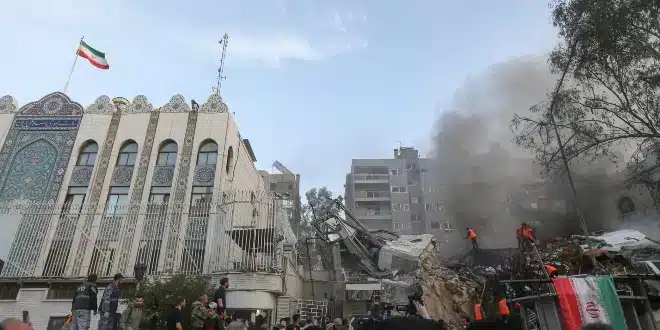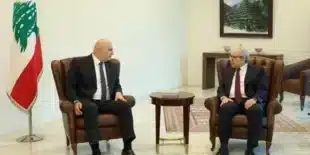The Middle East, and much of the world, is bracing for potential retaliation from Iran against Israel following the assassination of Hamas’ political leader. However, there is hope among regional leaders that Tehran might pull back in exchange for progress on Gaza peace talks. This sentiment was shared at an emergency summit in Jeddah.
As tensions rose on Wednesday, flights across Iran and its neighboring countries were canceled due to fears of missile strikes, which could escalate the conflict in Gaza. With the threat of a regional war looming, Iran’s Acting Foreign Minister Ali Bagheri was seen in deep conversation with aides during the high-stakes meeting.
The summit, held at the modest headquarters of the Organization of Islamic Cooperation (OIC) in Jeddah, saw foreign ministers from Muslim-majority countries, including Yemen and Cameroon, come together to prevent the situation from spiraling into a wider conflict. Since the assassination of Hamas’ Ismail Haniyeh in Tehran, Iran has vowed vengeance against Israel, which has neither confirmed nor denied its involvement.
Jordan’s Foreign Minister Ayman Safadi, who attended the summit, emphasized the need to address the root cause of the escalation—the ongoing Israeli aggression in Gaza. Safadi, who had met with Iranian officials, including President Masoud Pezeshkian, over the weekend, believes that Iran might be looking for a way to de-escalate the situation.
The summit’s aim was to convince Israeli Prime Minister Benjamin Netanyahu to soften his stance in ceasefire negotiations with Hamas. The involvement of the United States was crucial, with Secretary of State Antony Blinken stressing the importance of avoiding further escalation.
France’s President Emmanuel Macron also joined the diplomatic efforts, urging Iran to abandon plans for retaliation against Israel. In response, President Pezeshkian indicated a willingness to consider a ceasefire in Gaza, contingent on the cessation of arms sales and support to Israel by the West.
The potential for Hezbollah to act independently remains a significant concern. Nearly ten months into the Israel-Hamas conflict, which began with Hamas’ brutal October 7 attack, the death toll has reached nearly 40,000 Palestinians, with no end in sight.
Netanyahu’s acceptance of the ceasefire plan is uncertain, especially with the recent appointment of the hardline Yahya Sinwar as Hamas’ new leader. The change in Hamas’ leadership complicates ceasefire talks, emphasizing the need for external pressure, particularly from US President Joe Biden, to influence Netanyahu.
Despite frustrations, regional leaders hope that diplomatic efforts can prevent a broader conflict. The focus has also shifted to Hezbollah, with concerns that the group might act independently in retaliation for the assassination of its top military commander, Fu’ad Shukr, in Beirut.
As diplomatic efforts continue, the situation remains precarious. The hope is that the Jeddah summit and ongoing back-channel negotiations can create a pathway to de-escalation, with both Iran and the US showing some willingness to engage in the process. The outcome now largely depends on the decisions made by Iran’s leadership.


